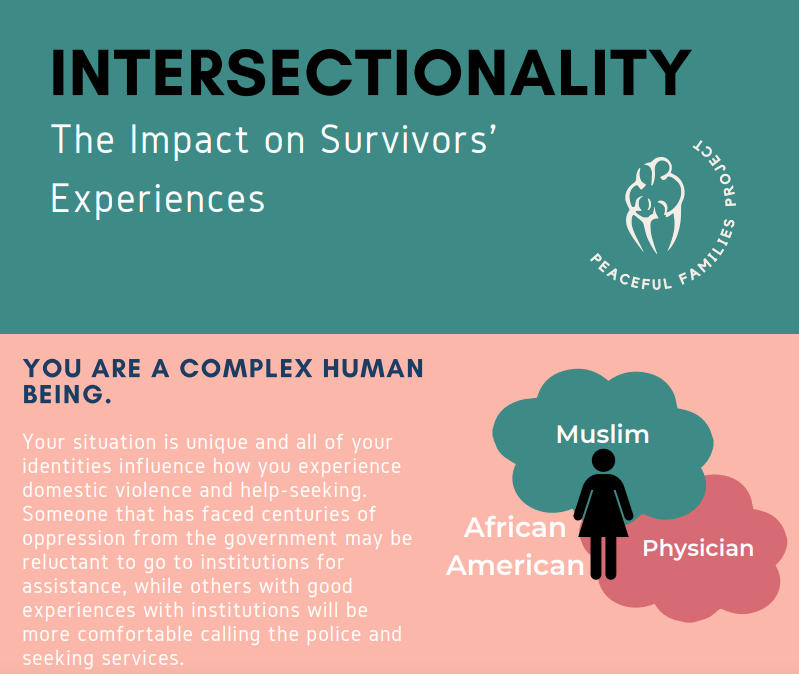When responding to survivors of abuse, it is critical that advocates and faith-leaders alike employ an intersectional lens to understand how race/ethnicity, gender, and religion play a role in shaping survivors’ experiences of abuse, grieving and help-seeking.
The term intersectionality was coined by Dr. Kimberlé Williams Crenshaw. It is a concept that enables us to recognize the fact that membership in a particular group can make people vulnerable to various forms of oppression. However, because we are simultaneously members of many groups, our complex identities can shape the specific way we each experience oppression.
 A survivor’s unique situation and all of the identities one may hold (for example, immigrant, Muslim, Black, mother) shape how they experience domestic violence, how they feel about their experiences and what they decide to do about it. This infographic for survivors by Peaceful Families offers a helpful illustration of intersecting identities and their impact on experiences of domestic violence.
A survivor’s unique situation and all of the identities one may hold (for example, immigrant, Muslim, Black, mother) shape how they experience domestic violence, how they feel about their experiences and what they decide to do about it. This infographic for survivors by Peaceful Families offers a helpful illustration of intersecting identities and their impact on experiences of domestic violence.
Experiencing multiple forms of oppression increases one’s vulnerability to violence and can make it more challenging for victims to find the help and support that is responsive to their individual needs. Domestic violence is linked to a web of oppressive systems such as racism, xenophobia, classism, ableism, sexism, and homophobia; therefore, it disproportionately affects women, children, and other marginalized groups (CDC, 2017).
Additionally, White supremacy practices within domestic violence agencies, coupled with Anti-Blackness, Islamophobia and hostility towards immigrants and refugees, have historically left many survivors, especially Black women, isolated, discredited and fearful for their safety – not only in their abusive relationship but also when accessing services from domestic violence agencies.
Resources in this section highlight the importance of responding to domestic violence within a racial justice and intersectionality of oppressions framework.
"Intersectionality is a framework that must be applied to all social justice work, a frame that recognizes the multiple aspects of identity that enrich our lives and experiences and that compound and complicate oppressions and marginalizations.” – Uwujaren & Utt, 2015









